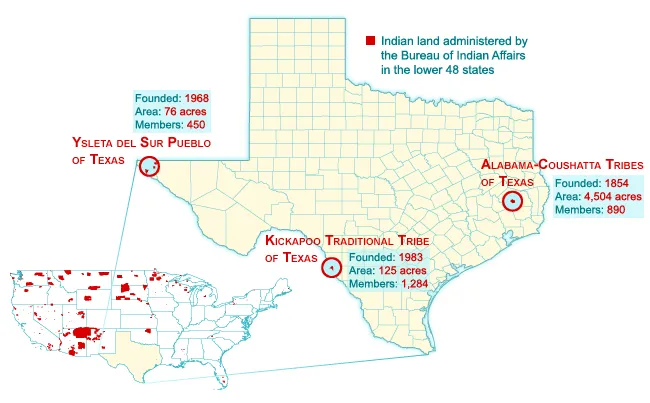The Lone Star State, Texas, boasts a vibrant cultural heritage woven intricately with the presence of Native American Clothing. From ancient civilizations to contemporary communities, these indigenous peoples have significantly shaped Texas’s identity.
In this article, we embark on a journey to explore the rich tapestry of Native American tribes in Texas, delving into their historical legacies and enduring contributions to the state’s diverse landscape
Native American Tribes In Texas
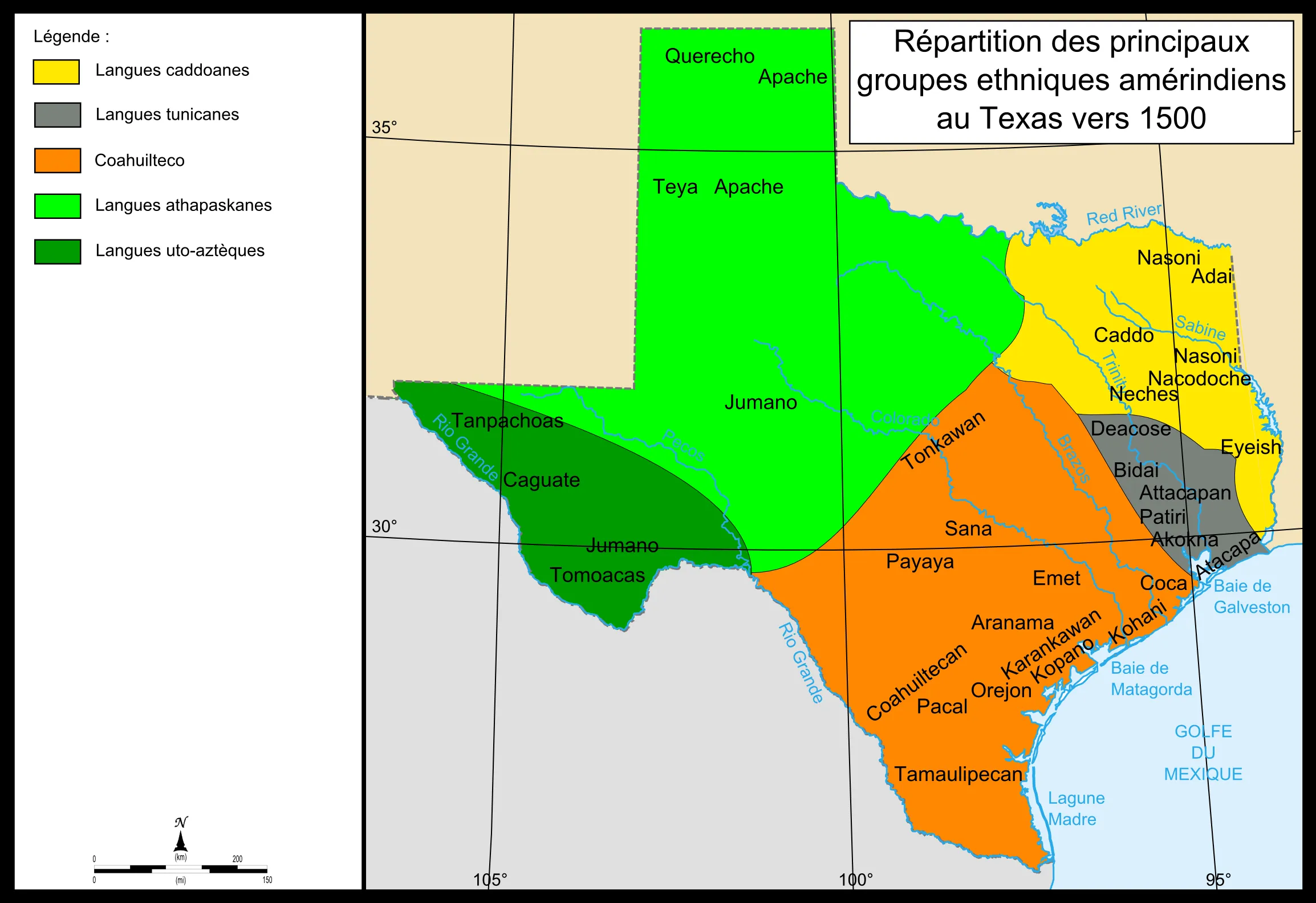
Texas, with its vast landscapes and diverse cultures, has a rich history deeply intertwined with Native American tribes. From historical communities to present-day indigenous peoples, the Lone Star State’s heritage is marked by their presence. In this article, we delve into the world of Native American tribes in Texas, exploring their historical significance and contemporary contributions.
Indigenous Peoples of Texas: Ancestral Homelands
Texas, once inhabited by a multitude of indigenous communities, bears the imprints of their rich cultures. These tribes include the Apache, Caddo, Comanche, Karankawa, and many more. Each tribe had its unique languages, traditions, and territories, contributing to the mosaic of Texas’s indigenous history.
Modern-Day Native Americans in Texas
While some Native American tribes have their headquarters in Texas, it’s essential to note that the state is also home to individuals from tribes based in other states. This blending of cultures and backgrounds enriches the fabric of Texas’s diverse population.
The Texas Commission for Indian Affairs
In recognition of the importance of Native American communities, Texas established the Texas Commission for Indian Affairs in 1965. This commission played a vital role in overseeing state-tribal relations, working towards understanding and cooperation.
However, it’s worth mentioning that the commission was dissolved in 1989, signaling a shift in the state’s approach to these relations. Despite this change, Native American tribes in Texas continue to thrive, contributing to the state’s cultural tapestry.
In conclusion, the Native American tribes in Texas have left an indelible mark on the state’s history and continue to play a significant role in shaping its diverse culture. While the Texas Commission for Indian Affairs may no longer exist, the legacy of these tribes persists, reminding us of the importance of preserving and celebrating their heritage.
What are the 4 main tribes in Texas?
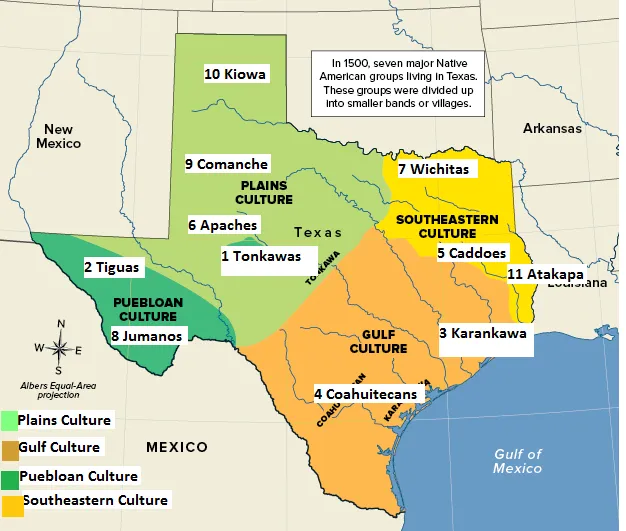
Texas, a land of diverse cultures and rich histories, continues to be home to American Indians representing a multitude of tribal nations. These resilient individuals, regardless of their tribal affiliations, are the torchbearers of their ancestors’ legacies, preserving time-honored traditions, vibrant cultures, and ancestral languages.
While only three federally recognized tribes currently maintain reservations within the state—namely, the Alabama-Coushatta, Tigua, and Kickapoo—Texas is a melting pot of indigenous heritage. The Lipan Apache Tribe of Texas, though not federally recognized, proudly calls McAllen home. Other prominent tribes, such as the Caddo, Comanche, and Tonkawa, have their official headquarters in neighboring Oklahoma.
In this article, we embark on a journey to explore the vibrant tapestry of American Indian presence in modern-day Texas, celebrating their enduring contributions and cultural richness.
You may also like this article Native American Tribes In Oregon Map
What are the 5 native tribes in Texas?
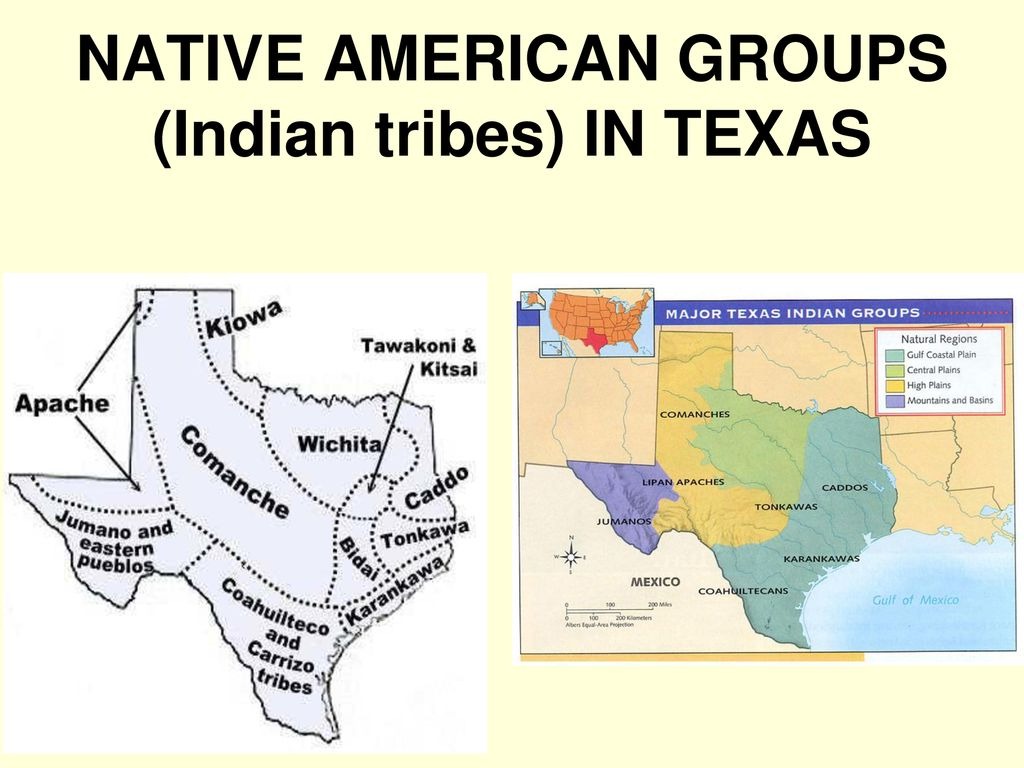
The National Archives at Fort Worth, Texas, stands as a treasure trove of historical records, especially those that shed light on the Cherokee, Choctaw, Chickasaw, Creek, and Seminole Indians, collectively known as the Five Civilized Tribes. Within these hallowed archives lie a wealth of documents, from financial records to land deeds, and even school documents, holding immense value for genealogists and history enthusiasts alike.
Preserving a Legacy: Administrative Records of the Muskogee Area Office (1835–1957)
The Muskogee Area Office, established in 1948, played a pivotal role in administering the affairs of the Five Civilized Tribes on behalf of the Bureau of Indian Affairs. Its historical roots, however, trace back to 1835, encompassing the Union Agency and the Five Civilized Tribes Agency. The archives house a multitude of invaluable records, including:
- Administrative Files: A comprehensive collection of administrative documents.
- Allotment Records: A meticulous record of land transactions and allocations.
- Land Plats: Maps and visual representations of tribal lands.
- Tribal Enrollment Records / Census Rolls: Vital documents tracking tribal members.
- Case Files: A diverse range of cases covering payments, payrolls, and annuities.
- Individual Native American Case Files: Personalized records of Native Americans.
- Legal Insights: A repository of lawsuits, probate case files, and related legal documents.
- The Dawes Commission: Records documenting the pivotal role of the Commission to the Five Civilized Tribes (also known as the Dawes Commission) in shaping history.
Join us as we embark on a historical journey through the annals of time, exploring these meticulously preserved records that continue to connect us to the vibrant tapestry of the Five Civilized Tribes’ past.
What Native American tribe is native to Texas?
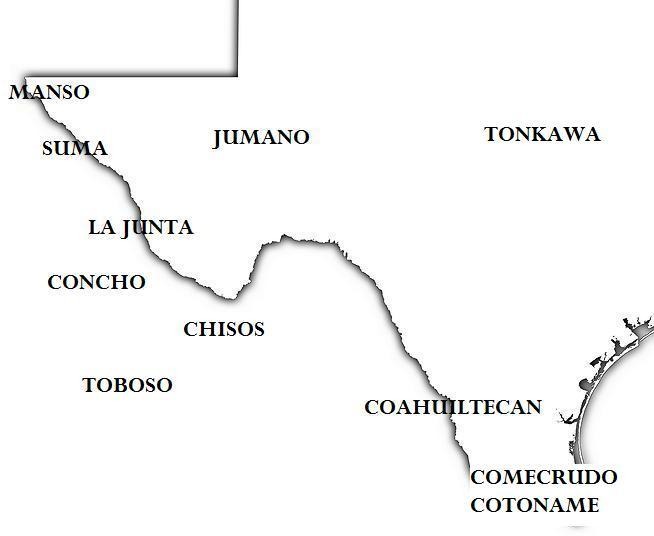
The lands that constitute modern-day Texas bear witness to a vibrant tapestry of history, one that was woven by Native Americans over thousands of years before the arrival of European explorers. Across these diverse landscapes, various Native American groups etched out their existence, leaving an indelible mark on the region. Among these resilient communities were the Karankawa, Caddo, Coahuiltecan, Neches, Tonkawa, Apache, Kiowa, Comanche, and Wichita, each with their own unique traditions and way of life. Their ancestral territory encompassed a vast expanse, stretching from the Gulf Coast to the Panhandle, embracing everything between the state’s eastern and western borders.
In this enlightening journey, we delve into the rich history and captivating culture of three influential Native American tribes that thrived in the heart of Texas: the Comanche, the Kiowa, and the Apache.
The Comanche: Lords of the Southern Plains
The Comanche, often referred to as the “Lords of the Southern Plains,” held sway over vast stretches of Texas. Renowned for their equestrian prowess and mastery of the Great Plains, they emerged as formidable forces in the region’s history.
The Kiowa: Nomadic Warriors of the Plains
The Kiowa, known as nomadic warriors of the plains, roamed the Texas landscape with a deep connection to the land and an unwavering commitment to their traditions. Their legacy continues to resonate in the annals of Texas history.
The Apache: Desert Dwellers of the Southwest
The Apache, skilled desert dwellers of the Southwest, navigated the challenging terrain of Texas with resilience and resourcefulness. Their cultural heritage remains a testament to human adaptability and survival.
Join us as we embark on an exploration of these remarkable Native American tribes, uncovering their stories, traditions, and enduring impact on the vibrant tapestry of Texas history.
How many Native American tribes are in Texas?
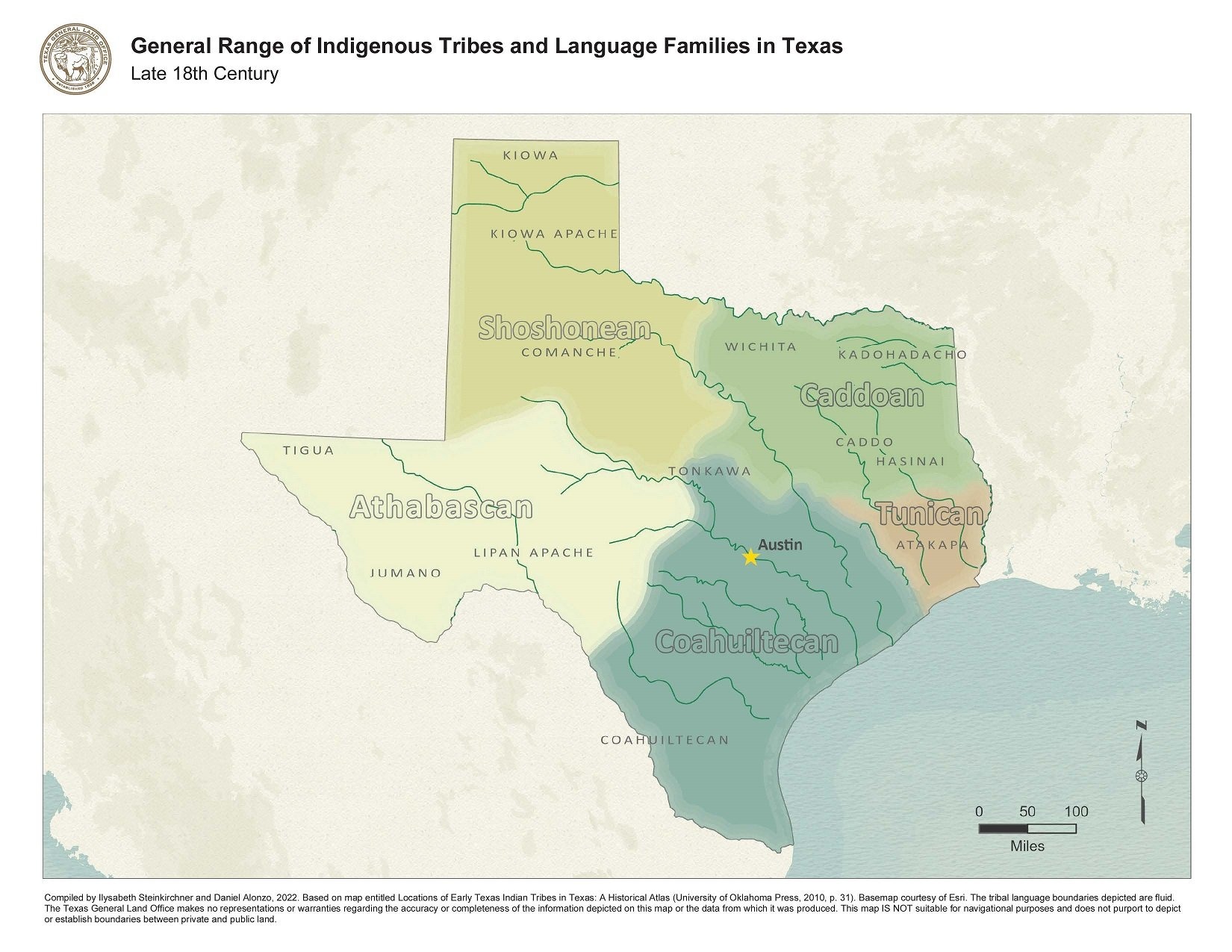
Texas, with its vast and diverse landscapes, has long been intertwined with the histories and cultures of various Native American tribes. While only three federally-recognized tribes are physically located within the state’s borders, the influence and interests of numerous tribes extend into the heart of Texas. As our understanding of historic tribal territories evolves with new discoveries, it’s crucial to acknowledge the rich tapestry of indigenous connections to this land. In this exploration, we delve into the tribes that maintain a connection to the State of Texas, shedding light on their unique identities and enduring legacies.
Alabama-Coushatta Tribe of Texas: Guardians of the Big Thicket
Nestled in the lush woodlands of East Texas, the Alabama-Coushatta Tribe has safeguarded their ancestral homelands, including the famed Big Thicket. With a commitment to preserving their cultural heritage, they stand as a testament to resilience.
Kickapoo Traditional Tribe of Texas: A Cultural Oasis in Eagle Pass
The Kickapoo Traditional Tribe of Texas calls the picturesque Eagle Pass home, where they have nurtured their traditions and maintained a deep connection to the land. Their cultural richness thrives along the Rio Grande.
Caddo Nation: Guardians of the Red River
The Caddo Nation’s historic ties to the Red River region endure to this day. Known for their distinctive pottery and vibrant traditions, they play a vital role in Texas’s cultural mosaic.
Cherokee Nation: A Legacy of Resilience
The Cherokee Nation, though headquartered in Oklahoma, holds a significant place in Texas’s history. Their legacy of resilience and cultural vibrancy extends far beyond state lines.
Comanche Nation: Lords of the Plains
The Comanche Nation’s storied past as the “Lords of the Plains” includes a deep-rooted connection to Texas. Their equestrian prowess and influence on the region’s history are legendary.
Kiowa Tribe of Oklahoma: Nomadic Warriors of the Plains
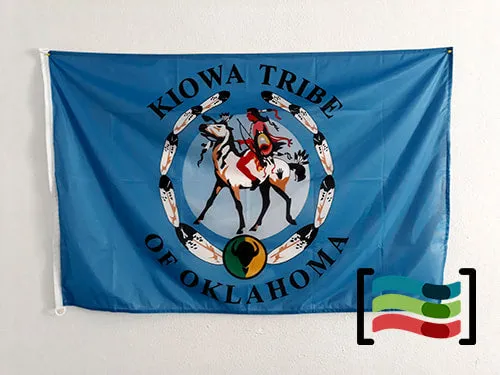
The Kiowa Tribe of Oklahoma, known as nomadic warriors of the plains, traversed Texas with a profound bond to the land. Their enduring legacy reverberates across the Texas landscape.
Wichita and Affiliated Tribes: Keepers of Ancient Traditions
The Wichita and Affiliated Tribes, with a rich heritage dating back centuries, maintain a connection to Texas’s history. Their role as keepers of ancient traditions adds depth to the state’s cultural tapestry.
Tonkawa Tribe: Guardians of Central Texas
The Tonkawa Tribe’s ancestral lands in Central Texas have witnessed their unwavering commitment to preserving their heritage. They are an integral part of the region’s cultural narrative. As we delve into the stories of these tribes, we gain a deeper appreciation for their enduring presence and the invaluable contributions they make to the vibrant cultural mosaic of Texas.
Texas, a land of diverse landscapes, has a profound historical connection with Native American tribes. While only three federally-recognized tribes are physically based in Texas, numerous tribes hold significant interests in the state.
This exploration unveils the unique identities and lasting legacies of these tribes, showcasing their integral role in Texas’s cultural tapestry. Discover the rich heritage and enduring traditions of Native American tribes in Texas

